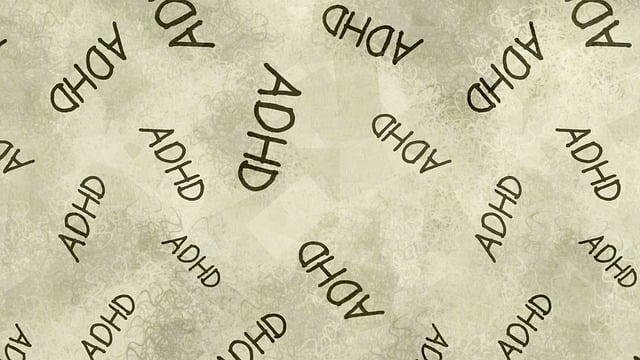Englewood Alcohol Abuse Therapy emphasizes mental wellness as a holistic concept, focusing on positive mindset and emotional regulation. They advocate for journaling as a powerful tool for self-reflection and personal growth, helping individuals build resilience through introspection and understanding their thoughts, feelings, and triggers. By combining guided exercises, mindfulness meditation, and diverse activities, Englewood's approach enhances emotional intelligence, strengthens coping mechanisms, and fosters cultural competency, ultimately supporting improved mental health and well-being. Regular journaling within treatment plans enables individuals to track progress, practice self-care, and navigate stressors effectively.
“Unwind your mind and embark on a journey of self-discovery through mental wellness journaling. This powerful tool offers a peaceful sanctuary for processing emotions, cultivating gratitude, and fostering resilience. In this guide, we explore how engaging with your thoughts can significantly impact your overall well-being, particularly when supported by evidence-based practices. Learn from Englewood Alcohol Abuse Therapy’s expertise on setting up a routine, incorporating creative exercises, and tracking progress towards a healthier mindset.”
- Understanding Mental Wellness and its Impact
- The Power of Journaling for Self-Reflection
- Setting Up Your Journaling Practice
- Incorporating Engaging Exercises
- Tracking Progress and Celebrating Success with Englewood Alcohol Abuse Therapy
Understanding Mental Wellness and its Impact

Mental wellness is a crucial aspect of overall well-being, encompassing our emotional, psychological, and social health. It affects how we think, feel, and act in various situations, impacting our daily lives significantly. Understanding mental wellness involves recognizing that it’s not just the absence of mental illness but also about fostering resilience and maintaining a positive state of mind.
Englewood Alcohol Abuse Therapy emphasizes the importance of emotional regulation and emotional intelligence as key components of mental wellness. Emotional regulation helps individuals manage and control their emotions, leading to better decision-making and improved relationships. Journaling is an effective tool for cultivating emotional intelligence, allowing one to reflect on thoughts and feelings, identify triggers, and develop healthier coping mechanisms. Through Mental Wellness Journaling Exercise Guidance, individuals can learn to navigate life’s challenges with greater awareness and composure.
The Power of Journaling for Self-Reflection

Journaling is a powerful tool for self-reflection and personal growth, offering individuals a chance to delve into their thoughts and emotions. This practice is especially beneficial for those seeking to improve their mental wellness, as it encourages introspection and promotes awareness of one’s feelings and patterns of thinking. By jotting down their experiences and reflections, individuals can better understand themselves, identify sources of stress or anxiety, and explore strategies for building resilience.
Englewood Alcohol Abuse Therapy recognizes the potential of journaling as a therapeutic practice, integrating it into various mental wellness coaching programs and trauma support services. Through guided exercises, clients are encouraged to explore their thoughts and feelings related to past experiences, current challenges, and future aspirations. This process fosters self-acceptance, enhances emotional intelligence, and strengthens coping mechanisms, ultimately contributing to improved mental health and overall well-being. The act of putting pen to paper allows individuals to gain clarity, process complex emotions, and develop a deeper sense of self, which is crucial for resilience building in the face of life’s challenges.
Setting Up Your Journaling Practice

Setting up a journaling practice is a powerful first step towards enhancing your mental wellness, especially when supported by Englewood Alcohol Abuse Therapy. Start by choosing a journal that feels right for you—it could be a beautiful hardback notebook or a simple spiral-bound pad. Make it a dedicated space where you can sit and reflect without distractions. Consistency is key; aim to write daily, even if it’s just for a few minutes. You might begin with simple prompts like describing your emotions, listing things you’re grateful for, or reflecting on positive experiences from the day.
Incorporating self-awareness exercises and mindfulness meditation into your journaling routine can deepen the benefits. For instance, before you write, take a moment to center yourself by focusing on your breath. This present-moment awareness can then permeate your journal entries, helping you gain valuable insights and fostering a more positive outlook—all essential components of mental wellness, supported by Englewood Alcohol Abuse Therapy.
Incorporating Engaging Exercises

Incorporating engaging exercises into mental wellness journaling can significantly enhance its effectiveness as a therapeutic tool. Beyond simple writing prompts, incorporating activities like mindfulness meditations, guided visualizations, or even creative expressions such as doodling and sketching can make the process more interactive and enjoyable. These exercises not only diversify the journaling experience but also cater to different learning styles, ensuring that individuals find an approach that resonates with them. For instance, those who benefit from visual aids might prefer drawing their emotions or creating collages to represent their mental state.
Integrating practices like those offered by Englewood Alcohol Abuse Therapy can be particularly beneficial. Crisis Intervention Guidance and Trauma Support Services often include techniques that can be adapted for journaling. Healthcare Provider Cultural Competency Training also emphasizes understanding individual needs, allowing you to incorporate exercises that respect diverse cultural backgrounds and personal preferences. By doing so, journaling becomes a dynamic process tailored to the unique journey of each individual towards improved mental wellness.
Tracking Progress and Celebrating Success with Englewood Alcohol Abuse Therapy

Englewood Alcohol Abuse Therapy understands the importance of tracking progress and celebrating successes along the journey to better mental health. By integrating regular reflection and journaling into treatment plans, individuals can gain valuable insights into their emotions, behaviors, and thought patterns. This practice not only aids in identifying areas for improvement but also reinforces positive changes.
Through effective communication strategies, therapists guide clients in documenting their experiences, setting achievable goals, and acknowledging milestones. The process of self-care routine development for better mental health becomes more tangible and meaningful when individuals can visually track their progress. Moreover, crisis intervention guidance within the journaling practice enables immediate reflection during challenging moments, fostering resilience and empowering individuals to navigate stressors effectively.
Mental wellness journaling is a powerful tool for self-reflection and personal growth. By setting aside time each day to record thoughts, feelings, and experiences, individuals can gain valuable insights into their mental health and well-being. As discussed in this article, engaging exercises like gratitude lists, mood tracking, and creative expression can enhance the therapeutic effects of journaling. Following the guidance provided, including setting up a consistent practice and tracking progress with tools like those offered by Englewood Alcohol Abuse Therapy, anyone can harness the benefits of journaling for improved mental wellness.














